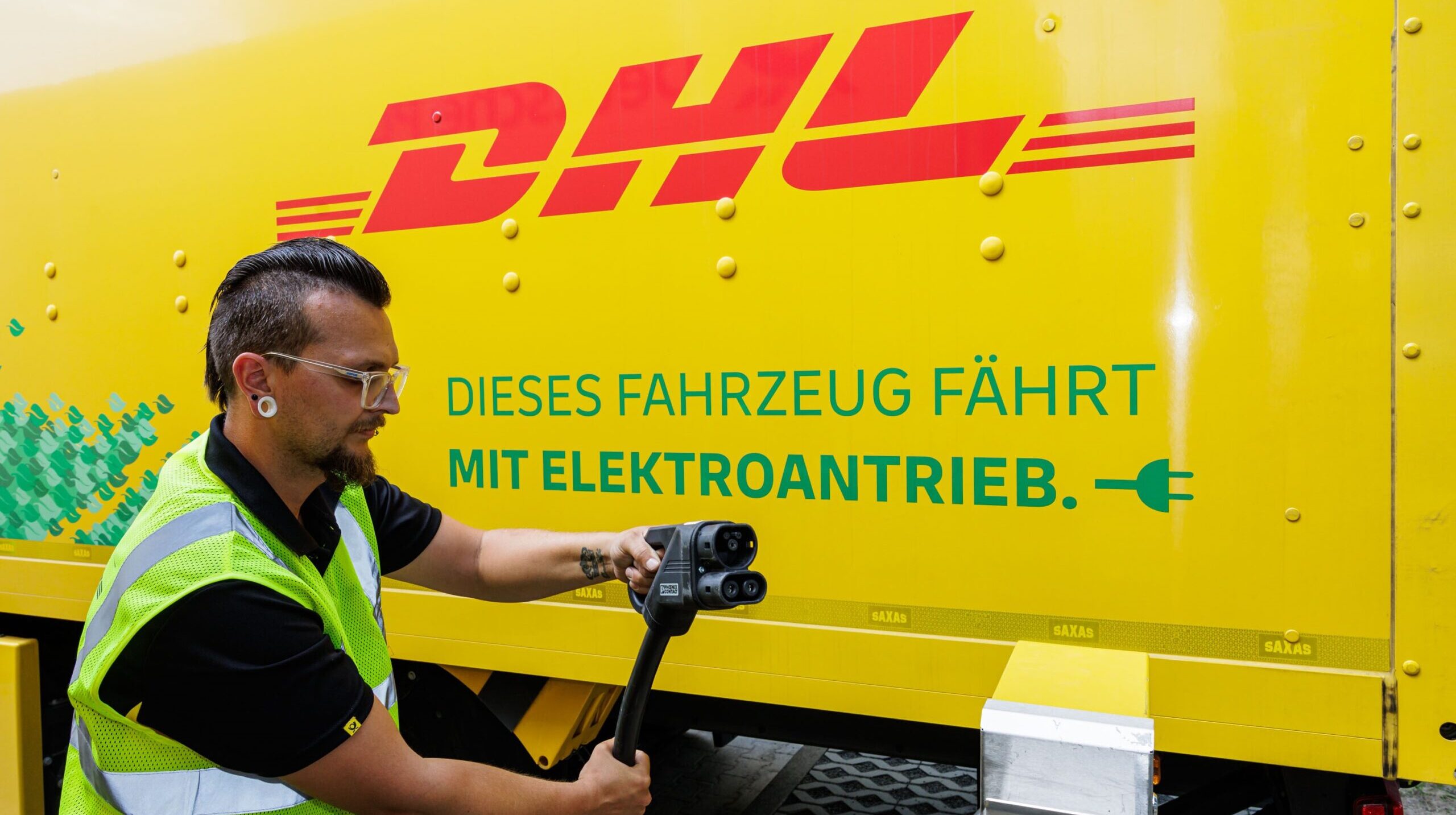DHL Group has announced a new partnership with energy provider E.ON to expand its fast-charging infrastructure for its electric heavy commercial vehicles in Germany.
E.ON will be responsible for the planning, construction of fast-charging and transformer stations, installation, load management and operation. The charging and billing concepts are optimized for electric trucks, with charging taking place at the loading dock and in outdoor parking spaces at the operating yards. For this purpose, E.ON has developed traverse systems with overhead cable guidance and seamless charging at loading docks even in tight spaces.
DHL service partners, such as fleet operators and transportation companies, can also use the charging stations as part of DHL Group’s wider Strategy 2025 sustainability plans to avoid emissions and reduce waste and other negative environmental impacts.
“The electrification of our fleet, especially in the area of heavy commercial vehicles, is an important building block on the way to our goal of making the entire logistics chain as sustainable as possible. We are delighted that we can work with E.ON to expand the charging infrastructure for us and our partners,” explained Andreas Mündel, senior vice president of strategy and operation programs at DHL Group.
Mathias Wiecher, chief commercial officer of E.ON Drive, added, “The switch to electromobility is a key element in reducing emissions in the transportation and logistics sector. At the same time, electrifying an entire fleet of trucks is a challenge that should not be underestimated. Our goal is to find the optimal solution for our customers that meets both operational requirements and sustainability goals. We look forward to tackling this project together with DHL and thus actively shaping the change in logistics.”
DHL is expanding the use of electric vehicles in its fleet, and already has 35 e-trucks in operation in Germany and more than 35,200 electric vehicles for pickup and delivery. By 2030, the goal is for its own electric vehicles to account for 60% of the fleet in this area.

